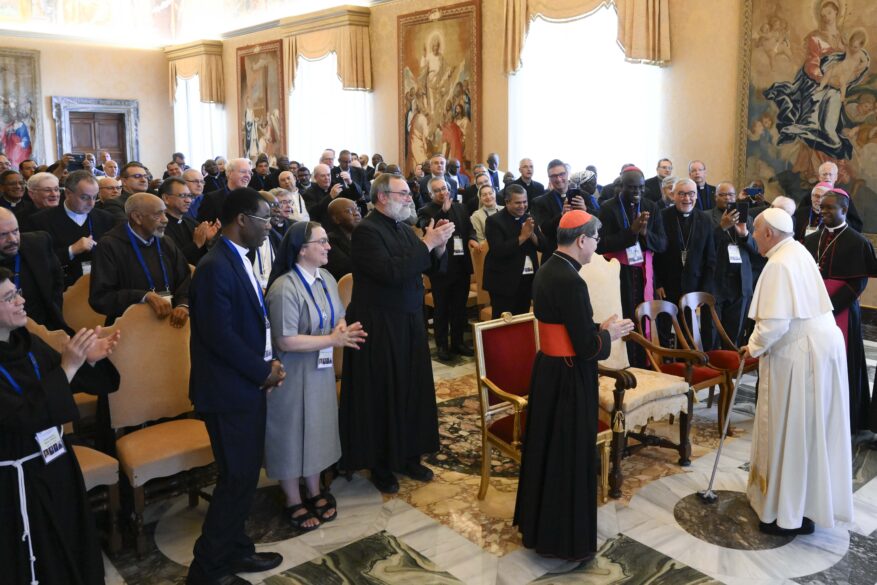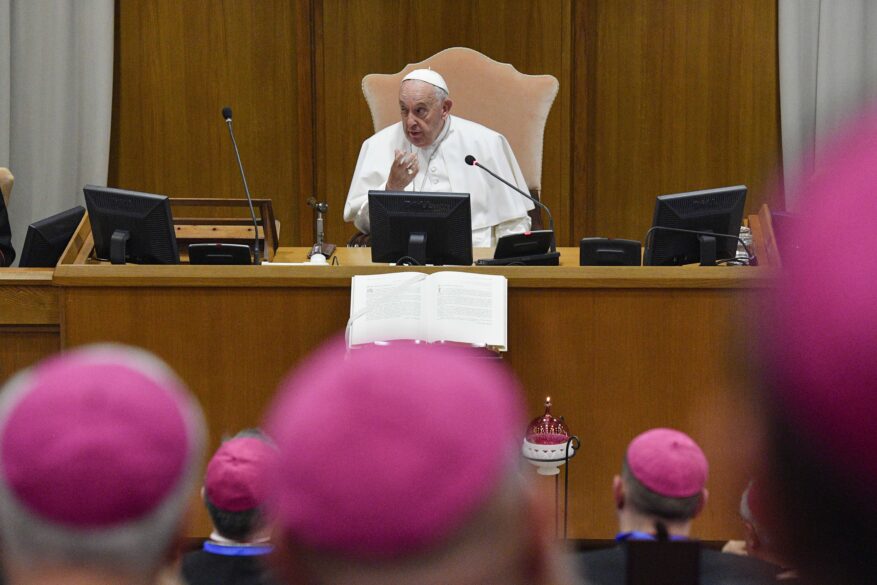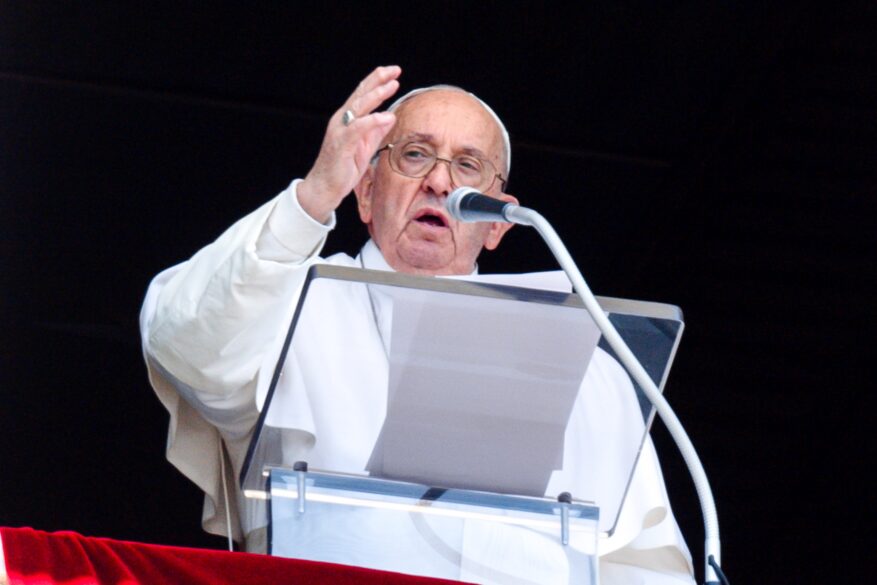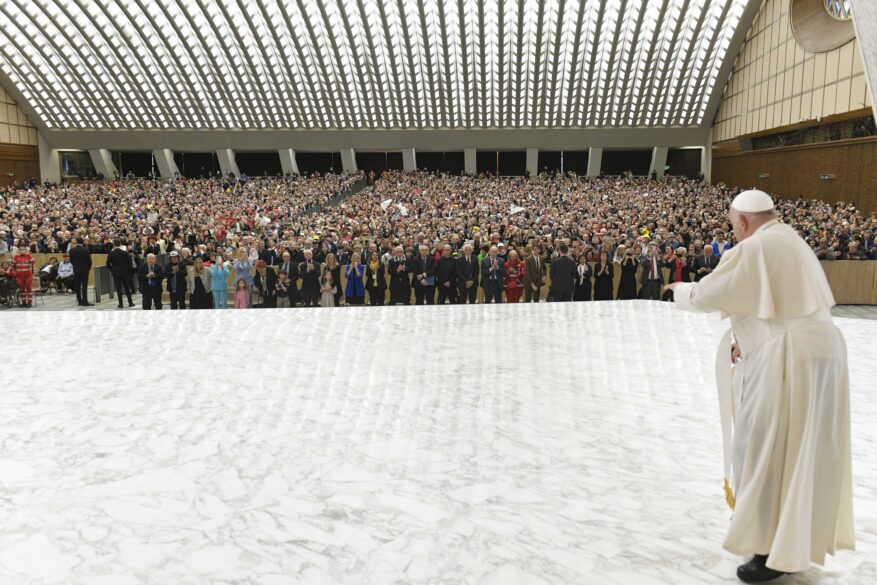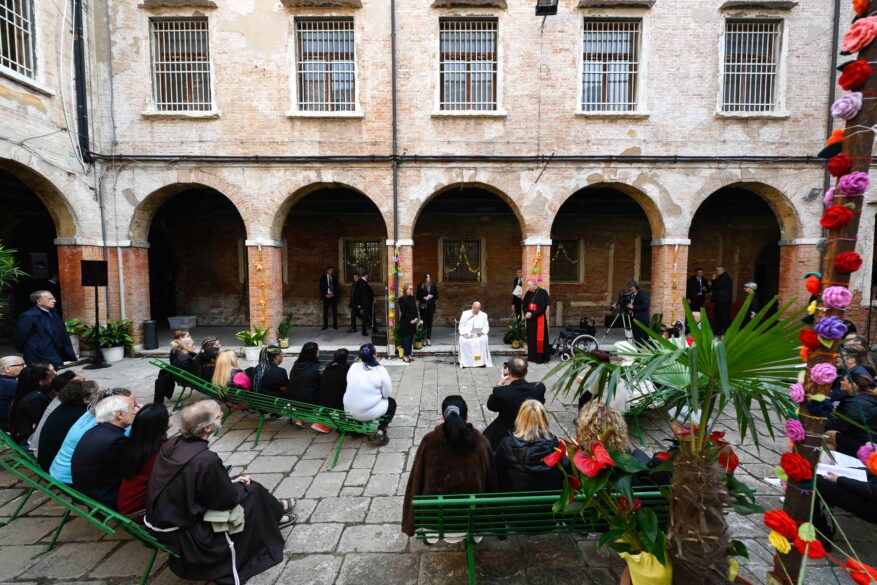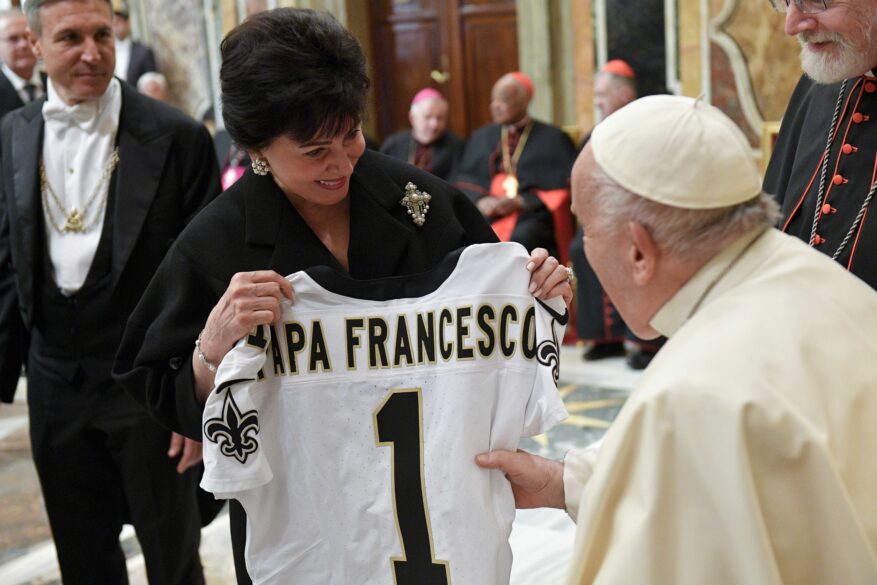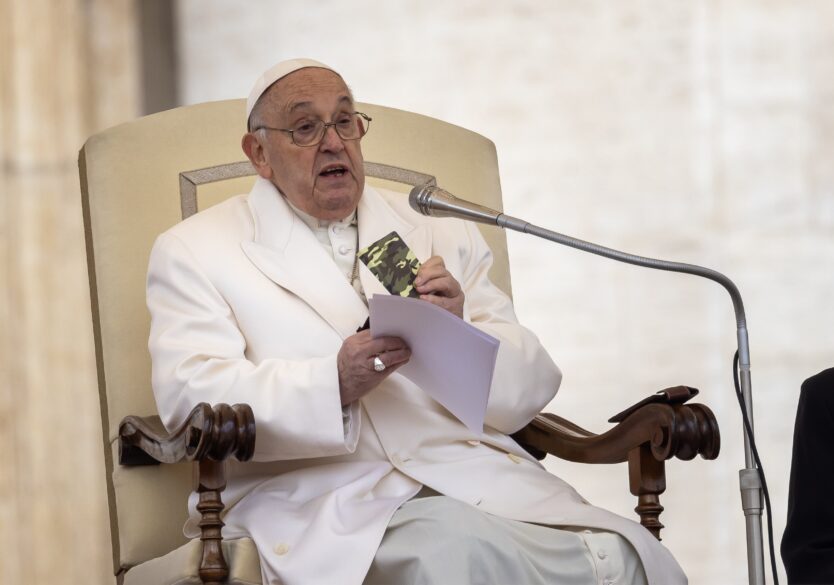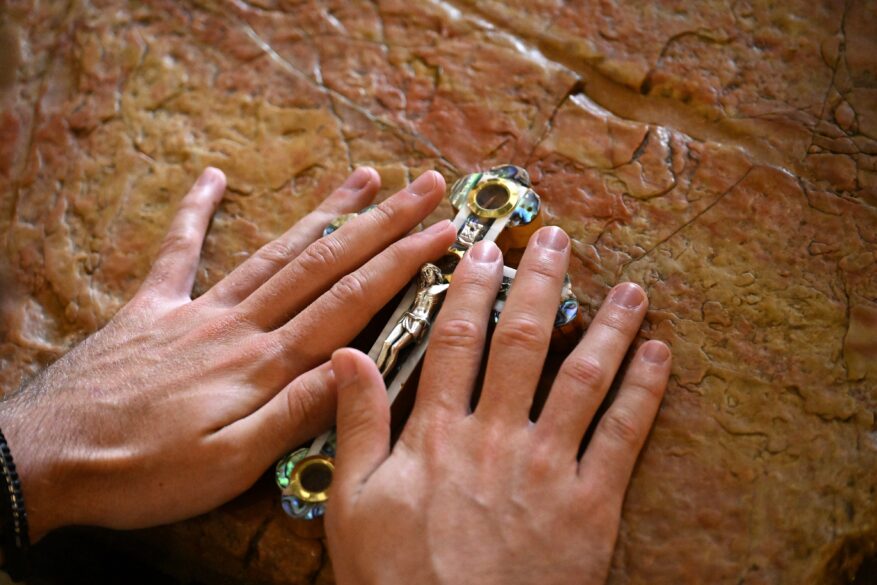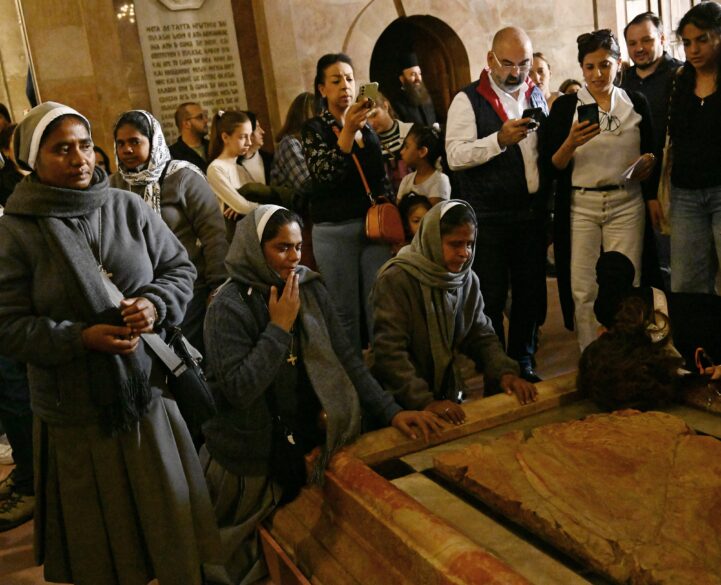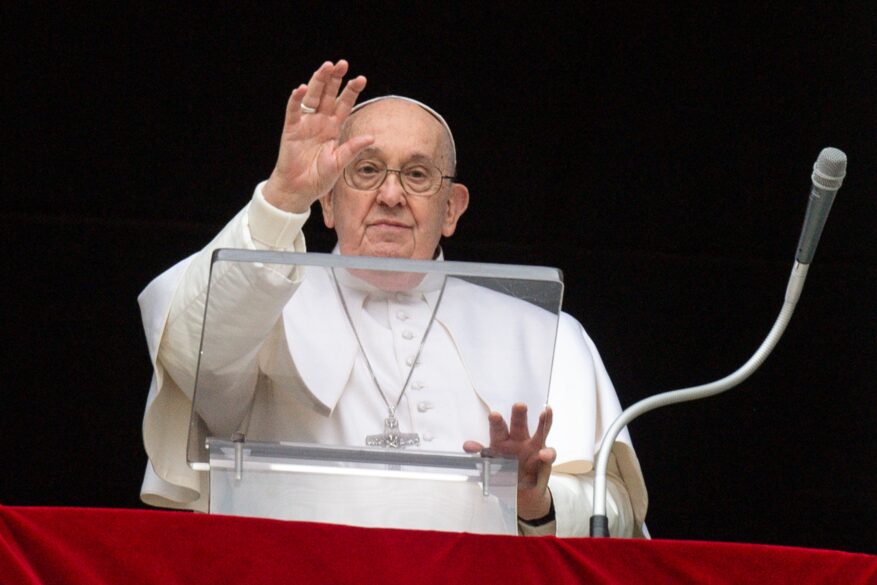By Justin McLellan
VATICAN CITY (CNS) — Pope Francis said he hopes the spirit of openness and dialogue embodied in synodality remain the norm for the Catholic Church after the current Synod of Bishops comes to a close.
The pope told the moderators of church movements June 13 that his hope is that “synodality remain as the permanent way of acting in the church at all levels, entering in the hearts of all pastors and faithful until it becomes a shared ecclesial style.”
The “most important thing from this synod on synodality is not so much dealing with this or that issue,” the pope said. “The most important thing is the parish, diocesan and universal journey in synodality.”
In March, Pope Francis decided that the most controversial issues raised at the first assembly of the Synod of Bishops, including the role of women in the church and guidelines for training priests, will be examined by 10 study groups and sidelined from main conversations at the next synod assembly. The groups are scheduled to present a preliminary report to the synod’s second assembly in October and to give the pope a final report on their work by June 2025.
Some 200 participants in a conference of moderators of associations of the faithful, ecclesial movements and new movements met with Pope Francis as part of a yearly meeting at the Vatican organized by the Dicsatery for Laity, the Family and Life; the theme this year was “The Challenge of Synodality for Mission.”
The meeting “aims to highlight some examples of synodal structures and practices already implemented in associations and movements that can be an example and stimulus for the whole Church,” a statement by the dicastery said, such as ” sharing experiences of faith within small groups or small communities, community discernment, co-responsibility of lay and ordained ministers in assuming roles of governance, involvement of married couples and young people in evangelization (and) charitable and social action.”
Pope Francis said that humility and an openness to other people and ideas are “synodal virtues,” and he told participants that ecclesial movements are meant to be at the service of the church and not seen as “a superior thing” within the church.
“Closed movements should be canceled,” he said; “they are not ecclesial.”
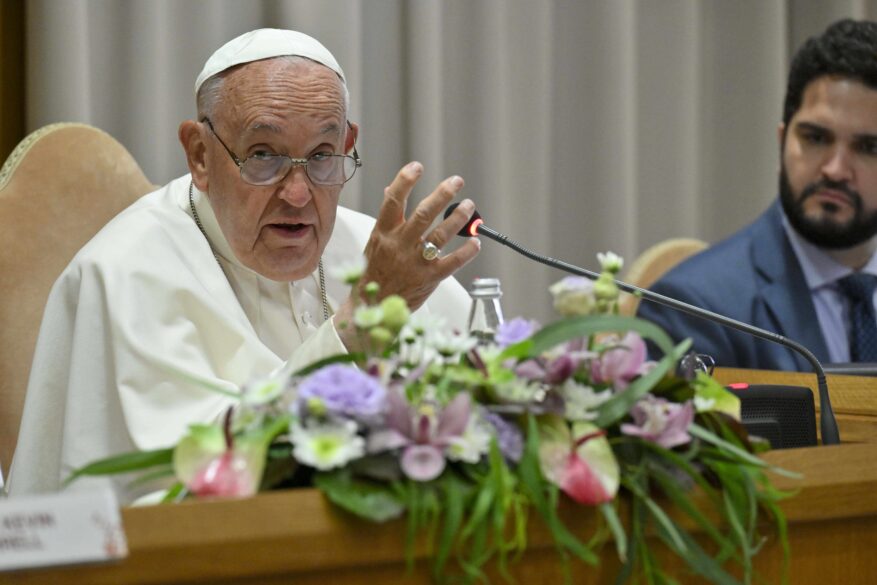
The pope said it is a temptation for members of the church to remain in a “closed circle,” to be “convinced that what we do is good for everyone, to defend, perhaps without realizing it, ‘group’ positions, prerogatives or prestige.”
Yet synodality asks Christians to see God’s presence at work “even in people we do not know, in new pastoral ways,” he said, as well as to “let ourselves be struck, even wounded, by the voice, experience and suffering of others: of brothers and sisters in the faith and of all the people close to us.”
Pope Francis asked the leaders of movements to remember that synodality involves thinking about what God wants from individuals and the church, so an absolute requirement is to not “take for granted that we are attuned to God” but rather “convert ourselves to think according to God and not according to men.”
“Let us remember that the protagonist of the synodal journey is the Holy Spirit, not us,” the pope said. “He alone teaches us to listen to God’s voice, individually and as the church.”

